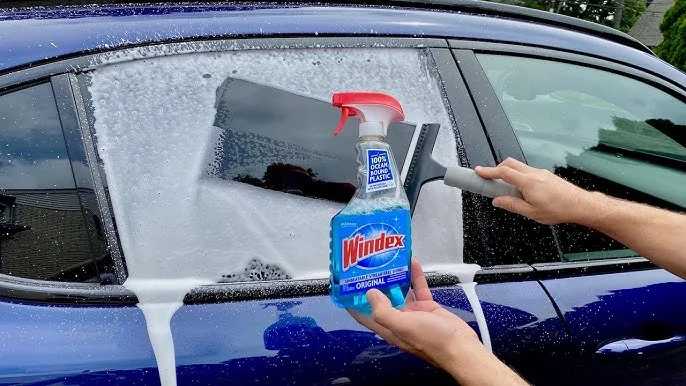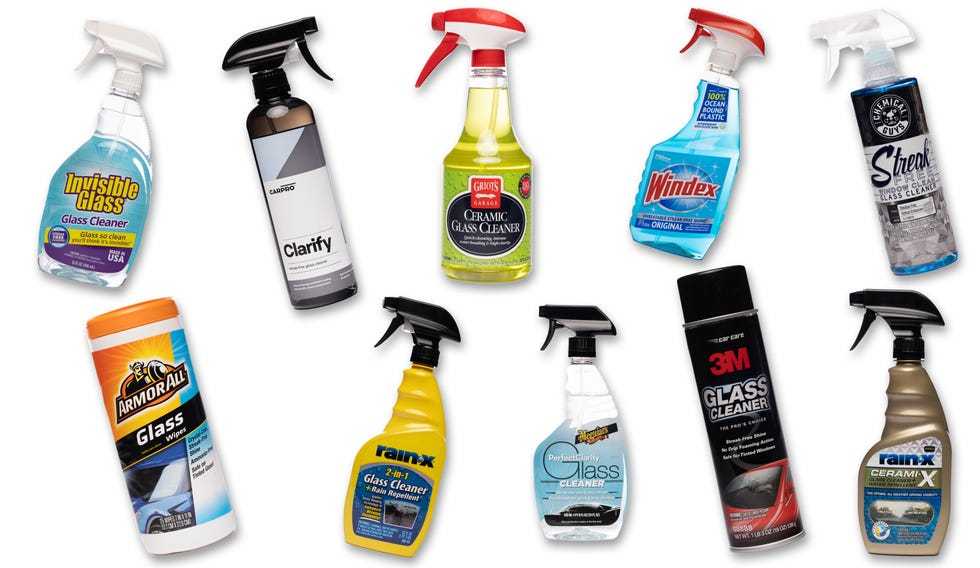Yes, you can use glass wipes on your car windows, but it’s important to choose the right type of wipe to avoid streaks and potential damage. Glass wipes are designed to clean glass surfaces efficiently, making them a convenient option for quick cleaning. However, some wipes may contain chemicals that are too harsh for automotive glass or are not suitable for use on tinted windows. It’s always best to check the ingredients and tests to ensure they won’t harm your vehicle. Using the proper glass wipe can leave your windows sparkling clear without scratches or residues, saving you time and effort. Keep reading to learn more about the best practices for cleaning your car windows safely and effectively with glass wipes.
If you’re wondering whether glass wipes are suitable for your car windows, the answer is generally yes, but with some precautions. Selecting the right wipes and using them correctly can help maintain your windows’ clarity and shine. In this guide, we’ll explore what to look for in glass wipes, how to use them properly, and tips to keep your car windows spotless without damaging their surface. Whether you’re cleaning off fingerprints or stubborn dirt, knowing the right products and techniques will make your car look brand new with minimal hassle.
Can you use glass wipes on car windows?
What Are Glass Wipes and How Are They Made?
Glass wipes are specially designed cleaning cloths often pre-moistened with cleaning solutions. They are typically made from soft, durable materials like microfiber or cellulose fibers. These wipes are meant to quickly and easily remove dust, dirt, fingerprints, and smudges from glass surfaces. Their convenience makes them popular for cleaning mirrors, screens, and car windows alike.
Are Glass Wipes Safe for Car Windows?
Most glass wipes are formulated to be safe on glass, but not all are suitable for automotive use. Safe glass wipes should not contain harsh chemicals like ammonia or bleach, which can damage window coatings. Using the right type of wipe is crucial, especially if your car windows have special coatings like UV protection or tinting.
Advantages of Using Glass Wipes on Car Windows
- Convenience: They are portable, easy to carry, and quick to use, making them ideal for on-the-go cleaning.
- Time-Efficient: They require no additional spray or cleaning tools, saving time during busy schedules.
- Minimal Mess: Pre-moistened wipes reduce the risk of spills or excess liquid on your vehicle’s interior.
- Effective for Light Cleaning: They excel at removing fingerprints, smudges, and dust from glass surfaces.
Potential Drawbacks of Using Glass Wipes on Car Windows
- Residue or Film: Some wipes may leave behind streaks or lint, especially if they contain inferior cleaning solutions or are low-quality.
- Chemical Composition: Not all wipes are made with automotive-friendly solutions. Some may contain chemicals that damage coatings or tinting.
- Limited Effectiveness for heavy dirt or grime: They are generally more suited for quick cleanups than deep cleaning tasks.
- Environmental Concerns: Many disposable wipes are not eco-friendly and can contribute to waste if used excessively.
What Ingredients Should You Look for in Glass Wipes?
When choosing glass wipes for car windows, focus on those with gentle, non-abrasive formulae. Look for wipes that contain:
- Isopropyl Alcohol: For quick evaporation and grease removal.
- Glycerin or Surfactants: To help lift dirt without leaving streaks.
- Ammonia-Free Solutions: To prevent damage to tint and coatings.
- Anti-Static Agents: To reduce dust buildup after cleaning.
Should You Use Regular Glass Wipes or Specialized Car Glass Wipes?
While regular glass wipes are often readily available and inexpensive, specialized car glass wipes tend to be safer and more effective. Car-specific wipes are designed with formulas that consider automotive coatings and tinting. They often come with features like anti-fog properties or additional protection against streaking and residue.
How to Properly Use Glass Wipes on Car Windows
Proper technique enhances cleaning results and protects your windows. Follow these steps:
- Start with a cool, dry surface to prevent streaking caused by heat or moisture.
- Wipe in a circular motion to lift dirt and avoid pushing grime into the glass edges.
- Use multiple wipes if necessary, especially if windows are heavily soiled.
- For best results, follow up with a microfiber cloth for polishing and streak removal.
- Avoid pressing too hard, which can scratch or damage the glass surface.
Can Glass Wipes Damage Car Window Coatings or Tints?
Certain chemicals in glass wipes may harm the protective coatings or tint layers on car windows. Ammonia-based solutions can degrade tint films over time, leading to bubbling or peeling. Always check the label for automotive compatibility and avoid wipes with harsh chemicals when dealing with tinted or coated windows.
Alternatives to Glass Wipes for Car Windows
If you’re concerned about potential damage or want to achieve a streak-free shine, consider these alternatives:
- Spray and Microfiber Cloth: A popular method involving a cleaning spray specifically formulated for automotive glass paired with a clean microfiber cloth.
- Vinegar and Water Solution: Natural cleaner safe for most windows, but ensure thorough rinsing and drying.
- Commercial Automotive Glass Cleaners: Products designed for automotive use often provide superior results without risking damage.
- Steam Cleaning: For deep cleaning, steam can loosen dirt without chemicals, though it requires special equipment.
Best Practices for Maintaining Clear Car Windows
To keep your car windows spotless over time:
- Clean windows regularly to prevent buildup of dirt and grime.
- Avoid using abrasive materials that can scratch the surface.
- Use a dedicated glass cleaner paired with a microfiber cloth for best results.
- Park in shaded areas to prevent rapid drying and streaking caused by sunlight.
- Address stubborn stains or residues immediately to avoid long-term damage.
Related Topics to Consider
Apart from cleaning with wipes, you might explore:
Using Detailing Sprays for Glass
These sprays enhance shine and reduce glare, especially beneficial for windy or rainy conditions.
Maintaining and Replacing Window Coatings
Understand how coatings can wear over time and how to protect or reapply them for long-lasting clarity.
How to Tint Car Windows Properly
Incorrect tinting can cause damage or reduce visibility. Proper application and quality materials ensure a professional finish.
Tips for Removing Hard Water Stains or Stubborn Residue
Special cleaning solutions or gentle scrubbing can restore clarity without damaging the glass.
Overall, while glass wipes can be convenient and effective for quick cleaning of car windows, it’s important to select those that are safe for automotive glass. By understanding the ingredients, proper usage techniques, and alternative methods, you can keep your car windows clear, streak-free, and protected over time. Regular maintenance with the right tools ensures optimal visibility and safety while driving.
How to Clean Your Vehicle Windows —Armor All® Glass Wipes
Frequently Asked Questions
Is it safe to use glass wipes on tinted car windows?
Using glass wipes on tinted windows generally won’t cause damage if the wipes are designed for glass surfaces. However, some wipes contain chemicals that could potentially degrade certain types of window tint over time. To ensure safety, select wipes labeled as safe for tinted glass or test a small area first to observe any adverse reactions.
Can glass wipes leave streaks or residue on car windows?
Many glass wipes are formulated to prevent streaking, but improper use or low-quality products can leave residues. For the best results, use a clean microfiber cloth along with the wipe and buff the surface gently. This will help achieve a clear, streak-free finish on your car windows.
Are there any precautions to take before using glass wipes on vehicle windows?
Before applying glass wipes, ensure the windows are cool and shaded to avoid streaks caused by rapid drying or temperature differences. Avoid using wipes on extremely dirty or grimy windows; instead, wash off heavy dirt first. Always follow the instructions on the product label for optimal results and safety.
Can glass wipes be used on the interior side of car windows?
Yes, glass wipes are safe for cleaning the interior of car windows as long as they are formulated for glass surfaces and free from harsh chemicals that could damage interior materials. Use a gentle approach to prevent scratching or streaking and avoid oversaturation of the wipes to prevent moisture from seeping into window seals.
Should I avoid using glass wipes on any part of my vehicle?
While glass wipes work well on windows, avoid using them on painted surfaces, rubber seals, or plastic trims unless specified by the manufacturer. Some wipes may contain ingredients that could harm other materials, so always check the label and use the product only on intended surfaces.
Final Thoughts
Using glass wipes on car windows can be convenient, but it’s essential to check their ingredients. Some wipes contain chemicals that might damage tint or leave streaks.
Always choose wipes specifically designed for automotive glass to ensure safety and clarity. Regular glass cleaner and a microfiber cloth often provide better results.
In conclusion, can you use glass wipes on car windows? Yes, but only if they are suitable for automotive use. Opt for the right products to keep your windows clean without risking damage.



